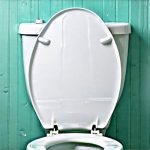The past few years have dramatically altered many aspects of daily life for people across the globe. Beyond the immediate concerns surrounding illness and economic disruption, prolonged periods of social isolation – whether mandated by lockdowns or chosen as a safety precaution – have had profound effects on our physical and mental wellbeing. While much attention has focused on psychological impacts like anxiety and depression, there’s growing awareness of the less-discussed but equally significant impact on gastrointestinal function, specifically bowel slowness, or constipation. This isn’t simply about infrequent trips to the bathroom; it represents a complex interplay between our nervous system, gut microbiome, lifestyle changes, and emotional state that deserves closer examination. Understanding why isolation can lead to this issue, and what steps can be taken to mitigate its effects, is crucial for restoring overall health and vitality.
Bowel slowness following prolonged social isolation isn’t necessarily a sign of underlying disease, but rather a physiological response to significant changes in our routines and stress levels. Our bodies are remarkably adaptable, constantly striving for homeostasis – a state of internal balance. Social interaction, physical activity, and structured schedules all contribute to this balance. When these elements are removed or drastically reduced, the digestive system can become sluggish. The gut-brain axis, a bidirectional communication network linking our digestive tract and central nervous system, plays a vital role here. Disruptions in social connection, often leading to increased stress and altered emotional states, directly impact this axis, influencing motility (the movement of food through the digestive system), visceral sensitivity (how we perceive sensations in the gut), and even the composition of our gut microbiome. This can create a vicious cycle where reduced activity, heightened anxiety, and dietary changes all contribute to slower bowel movements. If you are concerned about urgent bowel movements, further investigation may be helpful.
The Gut-Brain Axis & Social Connection
The gut-brain axis is increasingly recognized as central to overall health. It’s not merely a one-way street; the brain influences gut function, and the gut – with its vast microbiome – sends signals back to the brain. This constant communication impacts everything from mood and cognition to immune function and digestive processes. Social interaction itself stimulates this axis in positive ways. – Shared meals foster social bonding while encouraging mindful eating. – Laughter and conversation release endorphins, reducing stress hormones that can negatively impact digestion. – Regular physical activity, often increased through social engagements (walks with friends, team sports), promotes gut motility. Prolonged isolation disrupts these beneficial influences. The reduction in positive stimulation, coupled with potential increases in stress and anxiety, can lead to an imbalance within the axis, affecting gut function and contributing to bowel slowness. This isn’t simply a psychological effect; it’s a physiological response driven by the intricate connection between our brain and digestive system. Understanding habits that promote consistent patterns is key to long-term health.
Furthermore, the disruption of regular routines during isolation often leads to changes in lifestyle factors that directly impact bowel health. Many people experience decreased physical activity levels when confined indoors, leading to reduced gut motility. Dietary habits also tend to shift – perhaps towards more comfort foods or less structured meal times – further exacerbating the problem. These alterations, combined with increased stress and anxiety, create a perfect storm for constipation. It’s important to remember that bowel slowness is often a symptom of a broader systemic response to prolonged isolation, rather than an isolated issue. The gut-brain axis acts as a sensitive barometer of our overall wellbeing, reflecting the impact of social disconnection and lifestyle changes on our physical health. Considering filling meals can help mitigate digestive issues too.
Understanding the Role of Stress & Cortisol
Chronic stress significantly impacts digestive function. When we experience stress, the body releases cortisol, often referred to as the “stress hormone.” While cortisol is essential for survival in acute situations (the “fight or flight” response), prolonged elevation can have detrimental effects on gut health. – It can disrupt the delicate balance of the gut microbiome, favoring less beneficial bacteria and potentially leading to dysbiosis. – Cortisol reduces blood flow to the digestive system, slowing down motility. – It increases intestinal permeability (“leaky gut”), allowing undigested food particles and toxins to enter the bloodstream, triggering inflammation. Social isolation frequently leads to increased stress levels due to feelings of loneliness, anxiety, uncertainty, and lack of control. This chronic stress response can therefore contribute significantly to bowel slowness.
Addressing stress is paramount in restoring healthy digestive function. Techniques like mindfulness meditation, deep breathing exercises, yoga, and spending time in nature have all been shown to reduce cortisol levels and promote relaxation. Even small changes – such as establishing a daily routine, practicing gratitude, or connecting with loved ones (even virtually) – can help manage stress. It’s crucial to find strategies that work best for you and incorporate them into your daily life. Remember, managing stress isn’t about eliminating it entirely; it’s about developing healthy coping mechanisms to mitigate its impact on your physical and mental wellbeing. If you are following a specific diet like Keto, learning how to manage bloating is essential.
The Impact of Microbiome Changes
The gut microbiome – the trillions of bacteria, fungi, viruses, and other microorganisms residing in our digestive tract – plays a crucial role in digestion, immunity, and even mood regulation. Social isolation can disrupt the microbiome through several mechanisms: – Dietary changes often associated with isolation (increased processed foods, decreased fiber intake) can negatively impact microbial diversity. – Stress, as discussed previously, alters the gut environment, favoring less beneficial bacteria. – Reduced physical activity impacts microbial composition. A healthy microbiome is characterized by diversity – a wide range of different species working in harmony. When this diversity is reduced (dysbiosis), it can lead to digestive problems like constipation.
Restoring microbial balance requires a multifaceted approach. Consuming a diet rich in fiber-rich foods (fruits, vegetables, whole grains, legumes) provides nourishment for beneficial bacteria. Fermented foods – such as yogurt, kefir, sauerkraut, and kimchi – introduce probiotics (live microorganisms) that can help repopulate the gut. Prebiotics – found in foods like garlic, onions, and bananas – act as food for probiotics, further supporting microbial growth. Consider consulting with a healthcare professional about whether probiotic supplementation might be appropriate for your individual needs. If you experience unpredictable bowel habits, it’s best to seek medical advice.
Re-establishing Routine & Movement
One of the most significant consequences of prolonged isolation is the disruption of daily routines. Regular schedules provide structure and predictability, which are essential for both physical and mental wellbeing. This applies directly to bowel function. – Consistent meal times help regulate digestive processes. – Scheduled physical activity promotes gut motility. – Establishing a regular sleep-wake cycle supports overall health and reduces stress. When these routines are disrupted, the digestive system can become sluggish.
Re-establishing routine requires intentional effort. Start small – perhaps by setting a consistent wake-up time or scheduling a daily walk. Gradually incorporate more structure into your day, focusing on activities that promote both physical and mental wellbeing. Movement is particularly important. Even gentle exercise – such as walking, yoga, or stretching – can significantly improve gut motility. Aim for at least 30 minutes of moderate-intensity exercise most days of the week. Prioritize regular hydration, aiming for eight glasses of water per day. These small changes can collectively make a significant difference in restoring healthy bowel function and improving overall health after prolonged social isolation. Understanding early detection strategies is always valuable when addressing health concerns.


















